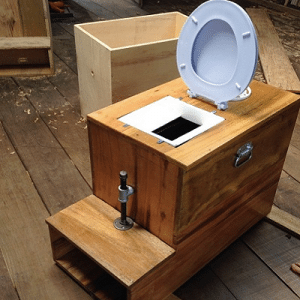
Agriculture
January 2, 2024
The TFP Composting Toilet
Read SolutionImplemented by
Toilets for People
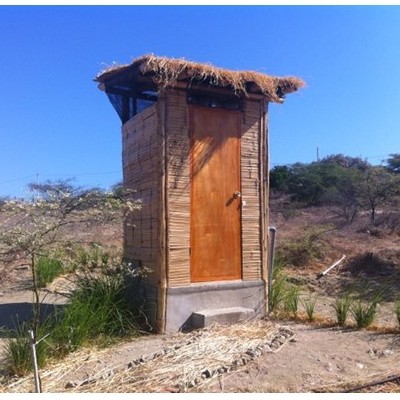
Updated on August 16, 2024
·Created on September 10, 2021
Ecoswell’s dry waterless composting toilet is designed to convert waste into compost and fertilizer.
EcoSwell’s dry waterless composting toilet is designed to convert waste into compost that can be used as a fertilizer for local crops.
Waste is collected in alternating plastic containers which allows for the waste to decompose into compost over time. This product is currently under development and is in the prototyping phase.
Target SDGs
SDG 6: Clean Water and Sanitation
Target Users (Target Impact Group)
Household, Community
Distributors / Implementing Organizations
EcoSwell
Competitive Landscape
Direct competitors include EcoSan/GroSan toilets, Mosan, Aquatron Eco Toilet System, Loowatt Toilet, Sun-Mar Excel NE Composting Toilet, Clivus Multrum composting toilet systems, Clean Team Toilet and Clean Team Toilet Waste Management Service, The TFP Composting Toilet, and Sanivation Container-Based Sanitation (CBS) Waste Collection Service.
Countries
Peru
Manufacturing/Building Method
Unknown
Intellectural Property Type
Select Type
User Provision Model
This product is distributed in partnership with Engineers Without Borders.
Distributions to Date Status
Unknown
Toilet type
Toilet
Evacuation method
Dry
Storage conditions
Container storage
Capacity (L)
7000 L
Time until emptying
1 year
Design Specifications
The design was inspired by the double vault Mexican design, but includes a urinal to limit urine entering the collection vault.
It uses two separate toilets or can incorporate a mechanism for changing vaults with the use of one toilet. Either way, the waste is collected in alternating plastic containers which allows for the waste to decompose into compost over time.
The toilets are designed to allow for upwards airflow that circulates unpleasant odors away from the user.
Technical Support
Provided by the manufacturer
Replacement Components
Unknown
Lifecycle
Unknown
Manufacturer Specified Performance Parameters
The implementation of the dry toilets aims to be a sustainable sanitation solution to reduce sewage spillages, open defecation, and water consumption while providing compost to improve low-nutrient soil.
Vetted Performance Status
EcoSwell and Engineers Without Borders UK conducted a feasibility study of dry sanitation solutions in Lobitos, Peru. The study addressed three key issues in which the dry toilet can assist in reducing: sewage spills, open defecation, and water consumption. Additionally, the study deemed the compost produced would be ideal in adding nutrients to the local sandy soils in need of supplements. A barrier to implementation would be educating the community about dry sanitation and switching users away from current flush toilets. A design brief reported findings from EcoSwell’s pilot project reporting that the dry toilet is capable of saving 15,000 L of water and producing 2,000 L of compost per year. Overall, the two-year pilot project was successful, with the largest issue reported being the number of flies.
Safety
Possible hazards include unsanitary latrine emptying or structural failure.
Complementary Technical Systems
Maintenance and collection services.
Academic Research and References
EcoSwell, 2015, Sanitation in Lobitos: Study of the feasibility of Dry Sanitation Solutions.
Engineers Without Borders South Africa, UK and USA & EcoSwell, 2020, Engineering for People Design Challenge: Design Brief 2020-21.
The following sources were used to help inform the toilet design:
Winblad, U., & Kilama, W., 1985, Sanitation Without Water, Enlarged Ed edition, Macmillan Education.
WaterAid, 2011, Construction of ecological sanitation latrine.
Compliance with regulations
None
Evaluation methods
This product is evaluated by EcoSwell and Engineers Without Borders based on the amount of water saved and compost produced.
Other Information
None

Agriculture
January 2, 2024
Implemented by
Toilets for People
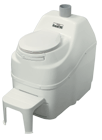
Agriculture
August 13, 2024
Implemented by
Sun-Mar
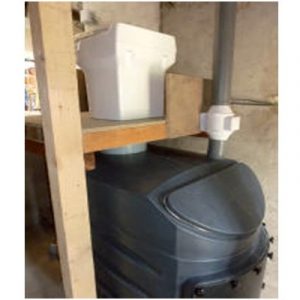
Agriculture
December 18, 2023
Implemented by
Clivus Multrum

Agriculture
December 19, 2023
Implemented by
Wostman
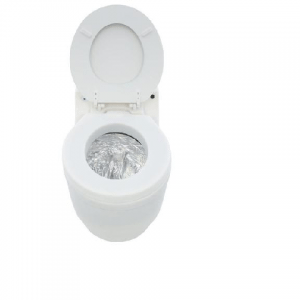
Agriculture
December 20, 2023
Implemented by
Dry Flush
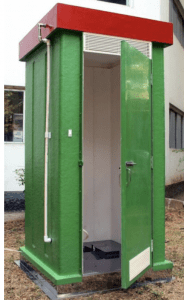
Agriculture
August 13, 2024
Implemented by
Indian Institute of Technology (IIT) Bombay
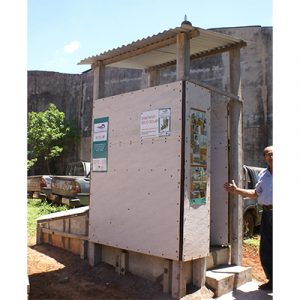
Agriculture
January 17, 2024
Implemented by
Centro de Desarrollo del Habitat y el Medio Ambiente (CEDES/Habitat)
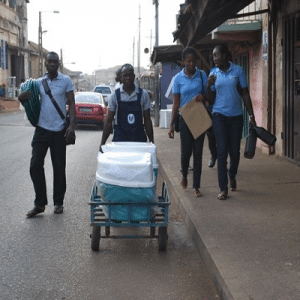
Agriculture
January 19, 2024
Implemented by
Clean Team Ghana
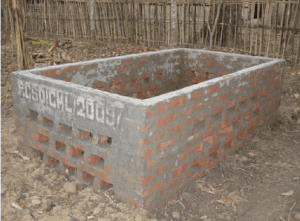
Agriculture
January 17, 2024
Implemented by
Narayan Deotao Pandharipande
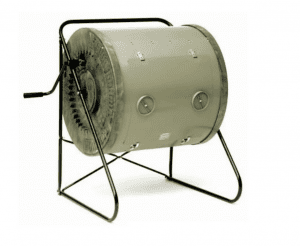
Agriculture
January 11, 2024
Have thoughts on how we can improve?
Give Us Feedback